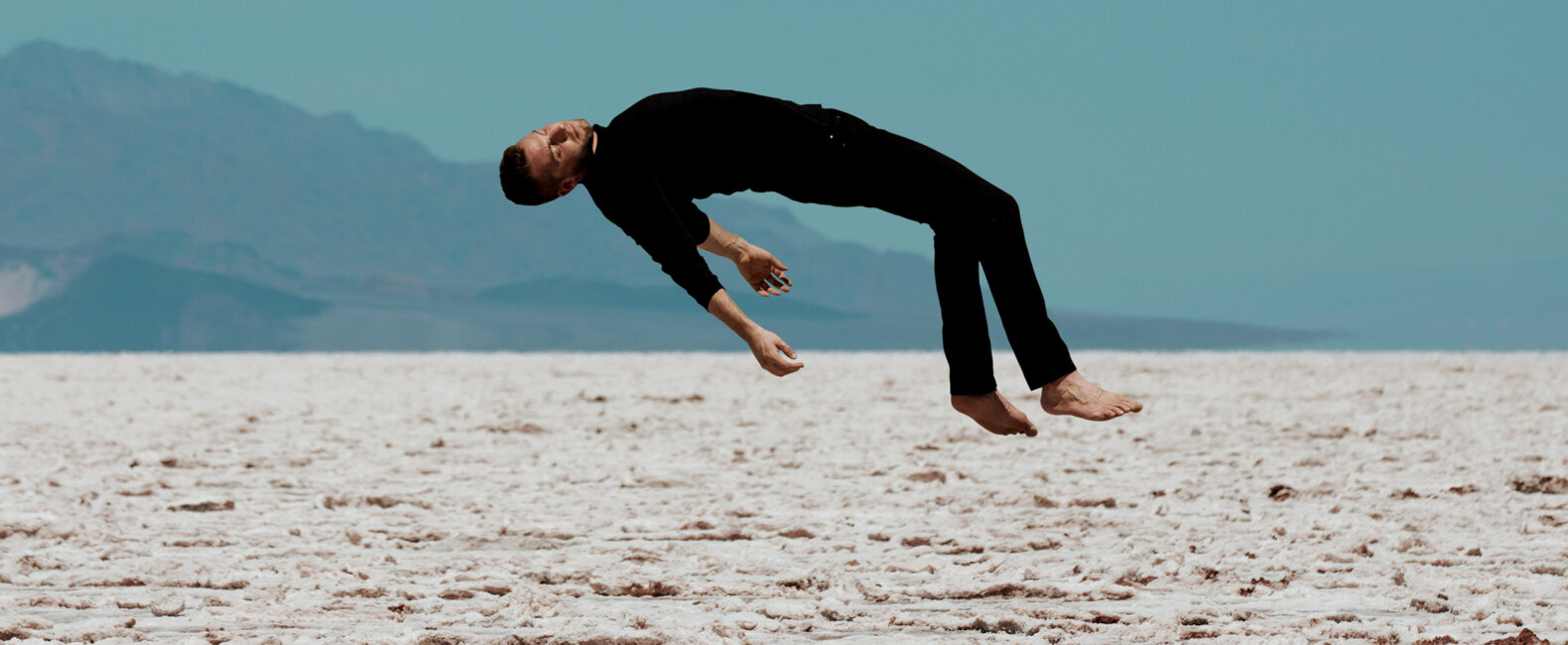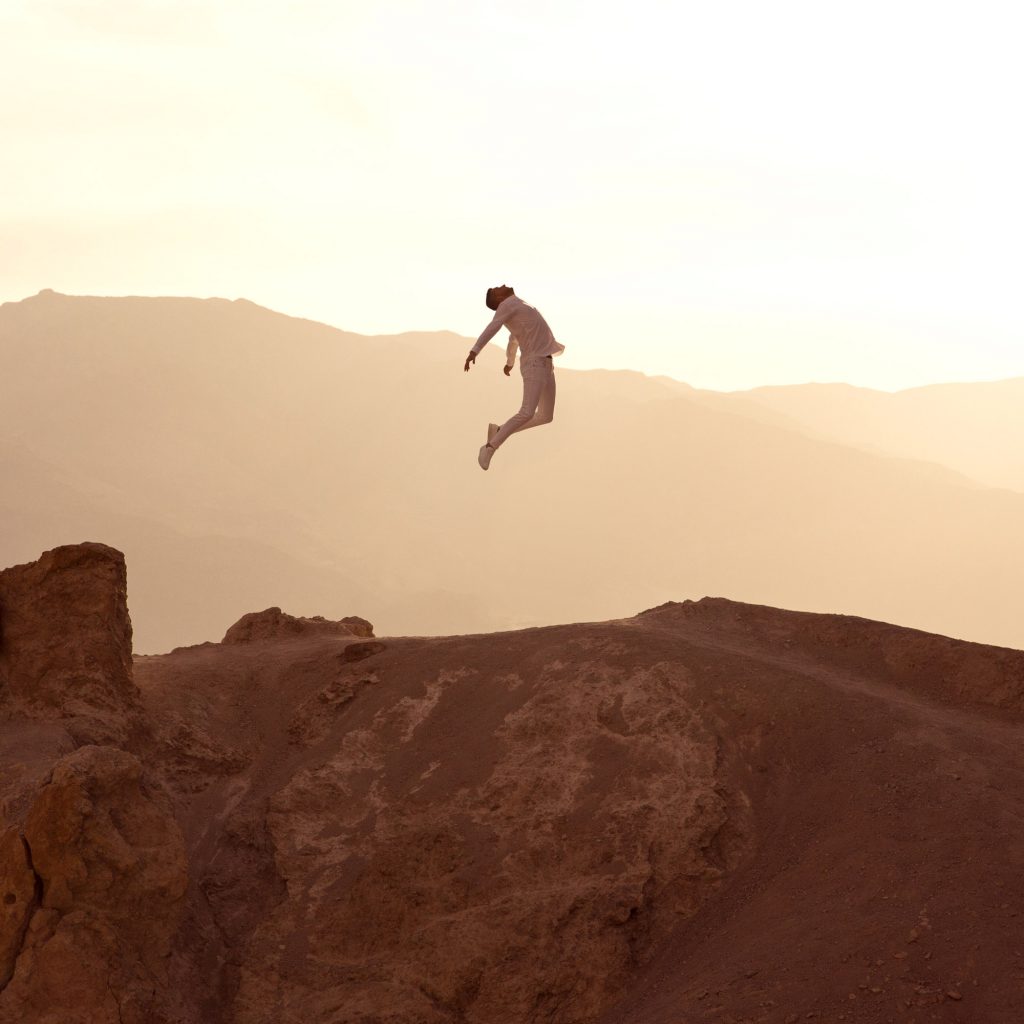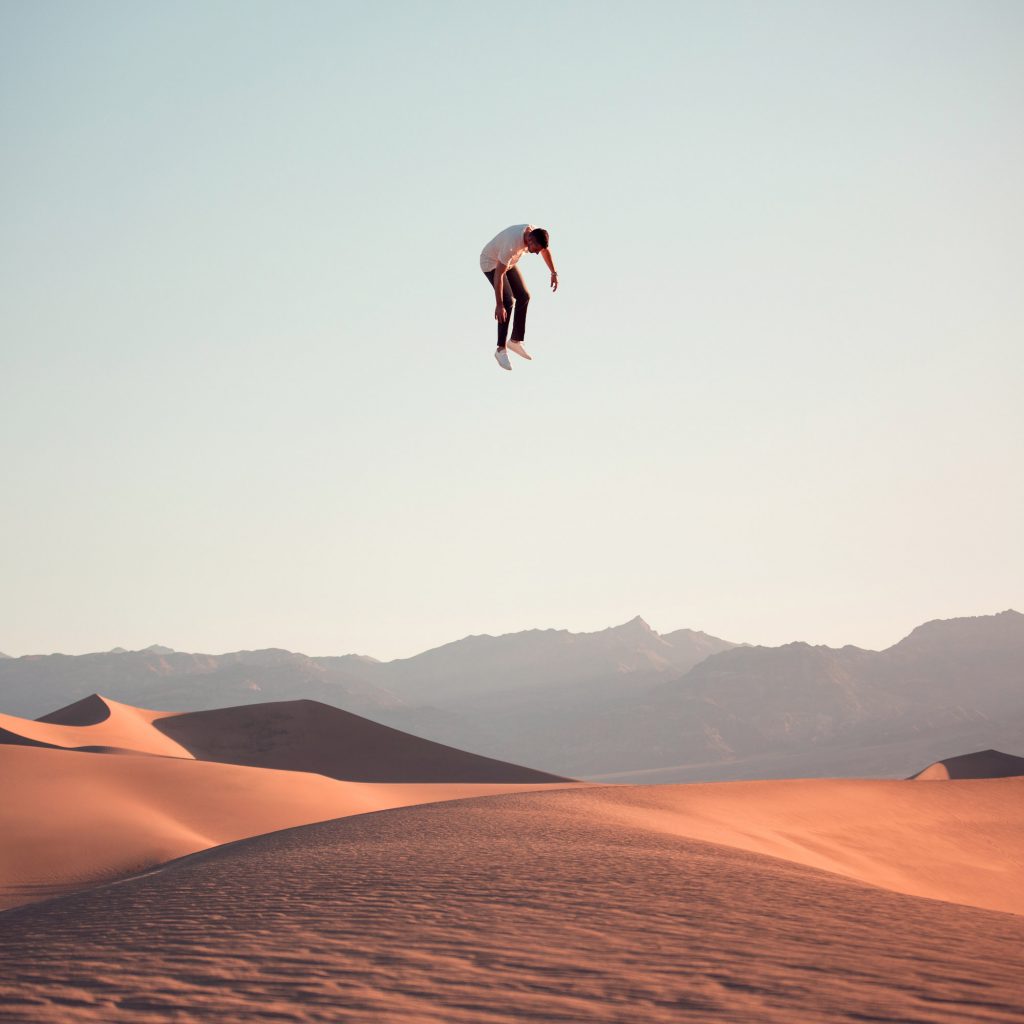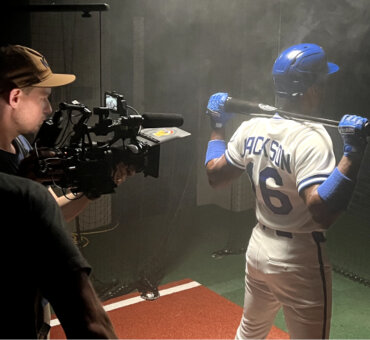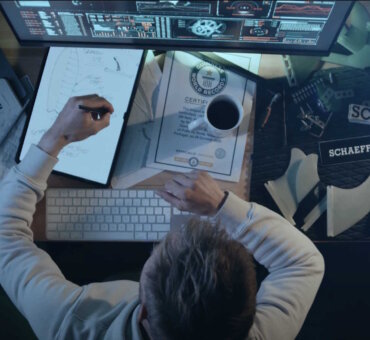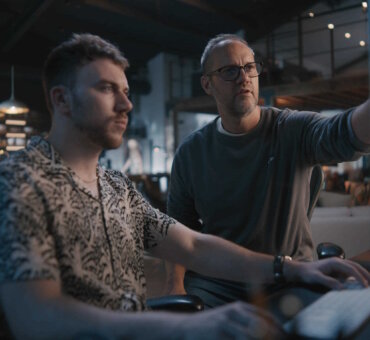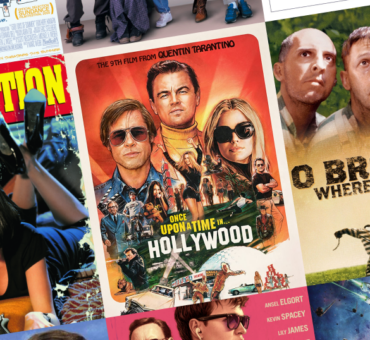Sometimes artists have to do battle with their work. The dirty truth is that art doesn’t always come easily. But, if we’re willing to stick with it, these projects can be the most rewarding and most definitive. Case in point: Composer Tony Anderson. He spent four years battling his latest album Chasm and, make no mistake, it was battle:
“A lot of us as artists carry these songs for years and then just throw them out into the world, hoping they’ll connect,” Tony told us. “I had such a difficult time writing these. They were a mixture of beauty and torture for me, but I went through that hoping they would be a gift to other people.”
And it wasn’t just a battle with the work. He battled anxiety, depression, and self-doubt to bring these songs into the world. He came out the other side with an album that’s breathtakingly beautiful, with moments of darkness and light, inspiration and sorrow. It’s one of his most striking works to date and we think it’s because of the struggle, not in spite of it. We talked with Tony about his process, how he broke through to create Chasm, and how sleeping through a concert changed his life.
First, check out our new video with Tony about the in-studio production of “Nocturne in Paris” and the nature of creative collaboration:
Musicbed: How are you?
Tony Anderson: I woke up at noon today, first of all. Let’s start there.
Partying hard?
[Laughs] I’ve been on the night shift for months. There’s a construction project next door and it’s completely reversed my life. I literally write music from 10 p.m. to 7 a.m. because there’s no noise during those hours. Most of this album was written overnight.
Are you normally a night person or is this new for you?
Well, before I got married, I used to know the people at Waffle House better than anyone else because I naturally write at night. There’s something about the energy that comes out at night that is really important to me. I never understood why I listened to the pressure to be an early riser to be productive because music is not productive. It’s not work. It’s inherently playful, you know? You don’t work a piano, you play it, and I don’t get playful with music until the evening.
Does Chasm have a bit more “nighttime” to it as opposed to your other work?
Yes, but maybe not for that reason. For years, I’ve been on a therapeutic journey in my own soul, probably the lowest and most bleak I’ve felt in years. So, it’s not a happy album. It’s interesting. I’ve been to two different deserts in this process, one in Dubai and one in Death Valley. Not of my own choosing. The album title came into formation in Death Valley. It just explains how disconnected I feel from the old version of me, who used to be able to write without fear, used to write unhinged.
I used to power through music. Music came together for me really fast four years ago when I last wrote an album on my own. For this one, it’s been four years and it was not coming quickly and I felt very distant from the kid in me that used to play for fun in my dorm room. There felt like an actual divide between me and that kid.
How did you bridge that gap?
The natural surroundings, for me, influenced this album. So, for “Resurrect”, I was working on it one day and it started raining in the evening. I just set up my microphones and captured the thunder and rain you can hear in the track and it became part of the song. This album was an exercise in not resisting reality, not resisting this construction project and the desert that I feel like I’m in with my soul. I’m embracing it and letting it become part of the actual music. A lot of creators talk about that, but for us to move that concept into reality is insanely difficult.
So, that was part of it. I also lacked inspiration and one of the things that unlocked it was visiting Max Richter’s live performance of Sleep, which took place overnight in Los Angeles. I guess that goes back to the night theme [laughs]. You pay for a ticket and you get a cot, bring your own bedding, and go out for an eight-hour performance that starts at 10 p.m. and goes until 6 a.m. in the morning.
Wow.
Yeah, I mean, that music is eternal. It took Max 25 years to write that album before he felt it was ready. He wrote it as a lullaby for a frenetic world and I got to lay there in my cot, looking at the full moon in downtown L.A., and listen to Grace Davidson’s soprano echo throughout the buildings, creating the most surreal music experience I’ve ever felt. I remember lying there at night, thinking, this guy has spent 25 years to give this gift to us. He didn’t cut corners. He didn’t think about what would sell. He didn’t care what people would think. He waited until it was right and he dropped it. That transformed my life.
It was the most transcendent moment I’ve ever experienced. I’m on this earth to make music and the hope is that it brings people into a moment of transcendence, into a moment of suspension, into a moment of their own lives that they’d never seen. To have that given to me as a gift over an eight-hour period, I was weeping by the end of it. I couldn’t explain what was happening. I’ve never felt that. I’ve never felt like I lost control like that.
That transformed me and showed me this is possible with music. I have to get to a place in my own soul where I can be this free again because there’s no use giving Musicbed or the world an album if I hate where I’m at. I came back from that trip and gave myself a break and said, “I’m not going to do this until I feel free to do this again.”

Obviously, you got there, right?
I made a conscious decision after a month off to say, “I’m going to finish the album. I’m just going to do it.” These melodies came to me as a free gift. They didn’t originate with me. They came to me as a free gift and I owe it to them and I owe it to people to steward them as well as I can. I decided to finish them. I made a commitment to change my schedule for the remaining months ahead of me to work through the night and sleep during the day, to see what would happen. I told my wife, she loved it, and I told my friends I wasn’t going to see them until this was done. I finished it two days ago.
Do you see Chasm as a collection of compositions or do you see each song as an individual?
To me, each individual song is its own self-contained world, which is why it took me so long to do this. It’s not your typical album. Even the people at the mastering company, who are used to doing Hollywood film scores, were like, “What is this?” It’s a collection of songs that reflect how I’m feeling.
Could you walk us through it, briefly?
Sure. “Chasm”, to me, feels like the most honest song to me and I don’t know why. It feels like a lament to me, expressing the sorrow I feel over these relentless school shootings and acts of domestic violence here in the U.S.
It made sense to start there and then enter into the mystery with “Oyarsa”. You have no idea how many iterations of the melody we went through. It didn’t make sense to overproduce it because the beauty of this song is in Timbre’s voice. We opted to keep it extremely simple.
“Aurora” and “Immersion” are two songs that came to me at the same time while on a wild adventure in Dubai earlier this year. “Immersion” in particular represents my art form at it’s pinnacle, when I manage not to over complicate the thing.
I wrote “Younger” for a young boy who is battling Hunter’s Syndrome. This disease usually takes the lives of the children who are affected by it, but I can see this unbelievable look in this kid’s eyes. I believe his spirit is coming more alive even while his body is wanting to succumb to the disease. It’s grief and hope meshed together.
“Nocturne in Paris” meant the most to me, personally. Years ago in Paris, I met a guy who’s now a very close friend, named Quentin. Years after meeting him he told me he has deep, deep insomnia and he can’t sleep unless he’s listening to music. I told him I was going to write a song for him and that I’d take a whole year to do it. I wrote it about how I feel about our friendship and how I feel about Paris at night.
“Finding Your Heart” is the most difficult, most overproduced, and the biggest learning experience of this album. I took something simple, the concept of trying to find my heart again, and made it complicated. I was going to release this album without it, but I decided to include it as part of the process of me learning to write music again.
“Deep Waters” was something I wrote about a seven-year journey I took with a few close friends, making a film, and it just felt right. It felt like everything I’ve felt about what it was like to start this thing, to go on this hellacious (and beautiful) journey that pushed my closest friendship to the breaking point. It feels like coming home.
And “Resurrect” was just that. It was the storm. It was everything I feel right now all together, at once. It all feels very spiritual to me. I don’t have language for it yet, so the songs are my way of communicating that.

Those are heavy feelings to express. It’s interesting to hear a composer process them through music.
I think lyricists use words to find the missing link. Me, as a composer, this is the language I speak in. It’s in melody. It’s in feeling. It’s in texture. So, a lot of what I was doing here was using synthesizers and instruments to communicate human things in a human way. It was meant to open the door to imagination and mystery, but not to finalize and answer everything.
I don’t know if the album will connect with people, but that was my hope as I sat and wrote these songs. I sent these songs off like kids. A lot of us as artists carry these songs for years and then just throw them out into the world, hoping they’ll connect. I had such a difficult time writing these. They were a mixture of beauty and torture for me, but I went through that hoping they would be a gift to other people. So, that’s where I’m at with it. I love what I get to do and… actually, yeah. I’ll just leave it at that.
Tony Anderson’s album Chasm is now available to license on musicbed.com for per-project licenses and subscriptions. To hear the full album and download it for your next project, click here.















































































